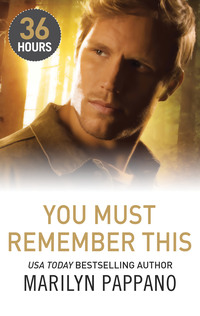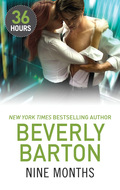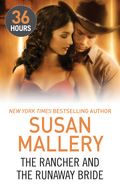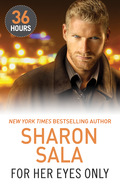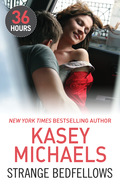Raamatut ei saa failina alla laadida, kuid seda saab lugeda meie rakenduses või veebis.
Loe raamatut: «You Must Remember This»
As a devastating summer storm hits Grand Springs, Colorado, the next thirty-six hours will change the town and its residents forever…
How did Mayor Olivia Stuart really die? And how is Martin Smith connected to her death?
The night of the storm, a stranger walked into Grand Springs's hospital. “Martin Smith” can’t remember his name or where he was going when he lost control of his car and crashed.
Months later he’s still searching for his identity. His intuition tells him the mayor’s murder holds the key, and he’s determined to stay in Grand Springs until he finds the truth.
Computer guru Juliet Crandall is the perfect person to help. She has the know-how and computer access to research the past of anyone in town. Helping the gorgeous and intriguing Martin is a breath of fresh air in her solitary life. But who is he really? Martin’s scars hint at a violent past—could he be dangerous?
Find out in the dramatic conclusion of the 36 Hours series.
You Must Remember This
Marilyn Pappano

MILLS & BOON
Before you start reading, why not sign up?
Thank you for downloading this Mills & Boon book. If you want to hear about exclusive discounts, special offers and competitions, sign up to our email newsletter today!
Or simply visit
Mills & Boon emails are completely free to receive and you can unsubscribe at any time via the link in any email we send you.
Contents
Prologue
Chapter One
Chapter Two
Chapter Three
Chapter Four
Chapter Five
Chapter Six
Chapter Seven
Chapter Eight
Chapter Nine
Chapter Ten
Chapter Eleven
Chapter Twelve
Epilogue
About the Author
Prologue
Friday, June 6
The emergency room was bustling, with every cubicle occupied, every chair in the waiting room taken. Some patients waited quietly. Others were vocal about their discomfort—and their displeasure.
The man walked past all the waiting patients to the broad hallway, where a harried clerk stopped him. “Can I help you?”
He looked blankly at her. Did he need help? He wasn’t in any pain except for the headache, and it would go away soon enough. The crack to his head had left him a little dazed, but that would go away, too.
“Sir? Are you hurt? Do you need to see a doctor?”
The bright lights in the hall made the ache in his head throb. When he closed his eyes to block the glare, he swayed unsteadily, and the woman took hold of his arm. “Sit down over here, and the doctor will see you as soon as possible. Did you hit your head?”
He sank into the chair against the wall and realized how good it felt to sit. It had been a long walk from the banged-up car on the highway to the well-lit hospital.
“Sir?”
Lifting one hand, he touched the knot raised when his head came in contact with some part of the car. “Yes, I…”
She crouched in front of him, pen poised over clipboard. “What’s your name?”
He opened his mouth, but nothing came out. Nothing. In a flash, the muscles in his stomach knotted and panic surged through him. It was a simple question, the simplest question in the whole world. What was his name? It was…
Still nothing.
“Sir, I need your name for our records.”
When he reached out, his hand trembled. When his fingers made contact with the clerk’s hand, they wrapped tightly around it. She tried to pull free, but he didn’t let go. Instead, he leaned closer, staring fearfully, desperately, into her face. “I don’t know… I don’t…”
Oh, God, he couldn’t remember.
* * *
“Should I list him as John Doe?”
He lay on his back, staring at the ceiling, only half listening to the medical staff around him. He had been examined, poked and prodded, X-rayed and interrogated and, finally, medicated. His clothes had been searched for identification, but none was found. His wallet—if he’d had one—was gone. His driver’s license was gone. His identity was gone.
On the up side, so was his headache.
“He doesn’t look like a John to me. Can we pick another name?”
“How about Chris?”
“No…he’s not the Chris Hemsworth type.” The answer was dry and mocking and made him wonder for the first time what he looked like. Did he have blond hair and blue eyes, like the actor? If he saw a photograph of himself, would he recognize it? If he walked over to the mirror above the sink, would he find himself facing a stranger?
He didn’t have the nerve yet to find out.
“Hey, I know what we can call him. Martin—”
The other female voice joined in. “Smith. Yes, of course. Perfect.”
“Who is Martin Smith?” That was the doctor, sounding disinterested as he made notes in the chart.
“He’s a character on the soap we watch. He’s tall, blond, blue-eyed—”
One of the women gave him a furtive glance that he caught from the corner of his eye, then lowered her voice. “A hunk.”
That was good, wasn’t it? It meant he didn’t look half as bad as he felt—and even without the headache, he felt pretty damn bad. He was scared.
Ever since he’d been brought back to the examination room, he’d been talked at, around and about. Finally, the doctor spoke to him. “You want to be Martin Smith?”
No. He wanted to be— He wanted to be whoever the hell he really was, not some soap opera pretty boy. He didn’t say that, though. Instead he simply nodded. He could be someone he wasn’t. He knew how to do that. Then, sooner or later, he would find out who he was.
Wouldn’t he?
“All right, Mr. Smith. You can get up now. We’re just about finished.”
He sat up on the examination table so that he was facing the mirror. Once he found the courage to look, he saw blue eyes and blond hair. The man in the mirror needed a shave. He confirmed it by rubbing his hand along his own jaw. He combed his fingers through his hair, then touched his face again. The mirror image did the same.
He was looking at himself.
He was looking at a stranger.
“If you’ll wait by the desk, Mr. Smith, I’ll have the admissions clerk call the police. Maybe they can help you find out who you really are.”
He nodded numbly, slid to the floor and followed the doctor to the desk. The chairs were still all full, so he wandered around the large room, pausing to look at bulletin boards and pictures, listening to the conversations around him to distract himself from his own problems.
“Yes, Doreen fell down the stairs when the lights went out. Doctor thinks she might have broken…”
“Melvin was in a wreck right downtown. The stoplights quit working, just like that, and some idiot who had a red light before just kept on…”
“The lights went off, and—poof—Randi just disappeared. From her own wedding! I declare…”
“Isn’t it awful about Olivia Stuart? To suffer a heart attack on the day of her son’s wedding! The poor woman.”
He stopped moving and pretended to study a poster advertising first aid classes at the local Methodist church. Olivia Stuart. Did the name mean anything to him? He couldn’t say. It felt…not familiar, but different from Doreen, Melvin and Randi.
“I heard Josie Reynolds went to her house looking for her when she didn’t show up at the wedding and found her unconscious on the kitchen floor. Bless her heart, maybe being the mayor has just been too much stress for her.”
Olivia Stuart was mayor of this town. That must be why her name stood out. That must be why he felt some vague response to her heart attack. It probably wasn’t anything—“Mr. Smith?”
If the police officer hadn’t spoken the name practically in his ear, he wouldn’t have responded. How quickly he’d forgotten the soap opera hunk. Forgetting could be a fatal error, one he rarely made.
“Will you come with us?”
As he left the waiting room with the two officers, he smiled the faintest of smiles. This time he’d forgotten the biggest, most important, most vital thing of all.
He’d forgotten himself.
Chapter One
Juliet Crandall sat at her computer, her fingers resting on the keyboard, but her attention was distant from her work—about fifty feet distant, she estimated, at a table in the library’s reference section.
The man seated there was one of Grand Springs’s intriguing mysteries. He was called Martin Smith—an unimaginative name for such an intense and handsome man—but no one knew who he really was, he least of all. He was a regular at the library, poring over newspapers, magazines, old high school yearbooks—anything that might jog his memory. It looked as if it was yearbooks today.
She wondered why he wasted his time. Grand Springs wasn’t so large that a student at one of the high schools could go totally unknown. If he had attended school here, someone would remember. A handsome face wasn’t easily forgotten. Six foot three, lean and mean weren’t very forgettable, either. No, if Martin Smith had lived here long enough to get his picture in a yearbook some twenty years ago, someone would know.
Though Juliet had been in town only a few weeks, she’d learned from library gossip that he’d been searching for ten months for some clue to his identity, and for ten months, he’d come up empty-handed. The police department—Juliet’s other new employer—had taken his fingerprints and sent them off to the state crime bureau and the FBI, but they’d gotten back a not-on-file response. So he wasn’t a cop or a criminal. He’d never been in the military, applied for a gun permit or held any sort of job that required a security clearance. Just like a few hundred million other people in the country.
Not. She’d seen her share of ordinary, everyday, average citizens, and Martin Smith, whoever he was, was definitely not like them. He was the stuff fantasies—hers, at least—were made of. Broad-shouldered, lean-hipped and long-legged. Carelessly tousled blond hair and stunning blue eyes that actors and models paid money to achieve with contacts. Skin of creamy gold as if he’d just finished up a month on a tropical beach instead of a winter of snow and ice in the Rocky Mountains. His clothes were casual—jeans, always jeans, faded ones that fit the way women wanted, and shirts, plaid flannel, chambray, plain white with the sleeves rolled up or snug-fitting T-shirts.
He was enough to distract even the most dedicated computer analyst-programmer-archivist from her work.
And she’d never even spoken to him.
He had sought help from the woman who’d held this job before her, but in her two weeks here, he’d never approached her. Maybe he’d developed a preference for working on his own. Maybe he’d simply run out of things to check. Maybe he just didn’t think she had anything to offer him.
That wouldn’t be a first.
With a sigh, Juliet forced her gaze from the window that was her small office’s only interesting feature and tried to focus on the computer screen. Grand Springs was finally bringing its library into the age of technology, reorganizing and computerizing. It was her job—every Tuesday and Thursday, at least—to do just that. The rest of her work week was spent at the police department, upgrading their computer system to allow them to take full advantage of the FBI’s new computer systems. When both jobs were completed, she’d be taking a full-time position in the police department as head of their records division. It wouldn’t be exciting, but at least it was different from what she’d done previously.
She’d lived all her life in the same Dallas neighborhood—heavens, in the very same house. It had been cheaper to live at home while attending college, cheaper than getting a place of her own when she’d gone to work. After her father’s death, she’d stayed to help her mother, and after her mother’s death, she’d stayed because it was comfortably familiar. Just as she’d stayed at the same job all those years, sitting in the same cubicle at the same keyboard, seeing the same people. She had shopped at the same stores, followed the same routines and faced the same depressing future.
At least here things were different. Not perfect. No, she was still the same shy, quiet woman she’d always been. She still didn’t have many friends. She still got all hot and tongue-tied at the idea of dealing with members of the opposite sex unless they were old enough to be her father or young enough to be her son. She still spent all her free time alone, and she still conducted her social life—what there was of it—in cyberspace.
She’d had hopes for more—that she would fit in here in a way she never had in Dallas. That she would make friends. That she might even meet the mysterious man she’d dreamed of since childhood who would sweep her off her feet with offers of marriage, babies and happily-ever-afters. After all, her last birthday had put her squarely in her mid-thirties. Time was slipping away fast. Just yesterday she’d been a dreamy teenager, lost in the books that were her refuge, convinced that someday her life would change. Tomorrow she would be a sad old maid, lamenting life’s unfairness, regretting the emptiness and loneliness. Today was all she had.
“Excuse me.”
For a moment, lost in the future she dreaded, Juliet didn’t respond to the quiet interruption. When she finally looked up, she wished she hadn’t. Her face grew warm, her mouth went dry, and her fingers went limp on the keyboard.
“You’re the new computer whiz.”
All she could do was stare and nod dumbly.
“I’m Martin Smith.” His mouth twisted in what might have been meant as a smile but was actually a grimace. “At least, that’s who I’ve been since last June.” He came farther into the room and extended his hand.
Her palm was probably sweaty, but it would be too noticeable if she took time to wipe it on her dress. She shook his hand, then quickly drew back.
“You’re…?”
The heat in her cheeks increased a few degrees. It was a simple process. He gave his name, and she offered hers. How could she forget? “Juliet. Crandall. I’m new. I replaced—” The other archivist’s name flew right out of her memory. “Whoever used to do this. The computers and…” Sure that she had sufficiently embarrassed herself, she lapsed into silence with her hands tightly clasped in her lap. Too bad Martin Smith hadn’t approached her via computer. E-mail and real-time chats were so easy. Jcrandall@gsc.edu could easily converse with anyone in the world. Juliet Crandall, face-to-face, couldn’t talk to anyone.
Without waiting for an invitation—one she never would have thought of offering—he sat in the only other chair in the room. “I don’t know if you’ve heard about me—”
“Oh, yes.”
The abruptness of her answer made him blush. On her, a blush was just painful evidence of yet another embarrassment. On him, it was charming. It eased the hard lines of his face and gave him a boyish appeal. “Yeah, I’m the town freak.”
“I didn’t mean…”
He brushed away her words. “You didn’t say it. I did. Actually, it comes in handy. I don’t have to waste time explaining myself to anyone. Terry Sanchez—the woman who used to do this—said that you were really good with computers.”
She shrugged. She’d been computer-friendly since the very first time she’d laid fingers on a keyboard. There were times, though, when she would have given up every skill she possessed to be a little more people-friendly instead. Now was definitely one of those times.
“Can you help me?”
Not ten minutes ago she’d wondered why he’d never sought her help. Now that he had, she wished he hadn’t. Helping him meant spending time with him, and while that was certainly an appealing prospect on one level, on another, it was terrifying. She didn’t do well one-on-one, especially with someone as handsome, intense and fantasy-quality male as Martin Smith.
But if she helped him, she would get to spend time with him. Maybe they could be friends. Maybe she could even learn something from him about relating to men.
“I don’t know. If the police and Terry couldn’t help…”
“I’m not a priority with the police. They ran my fingerprints and sent out a missing persons broadcast, and that was all. They didn’t have the manpower, the budget or the interest in pursuing it any further. As for Terry…she says you’re damn good with the computer.”
She should be. The computers and the Internet were her life. She got her news and entertainment there, visited with friends, planned vacations she never took and had even sold her house in Dallas via an on-line real estate agent.
“I know there are ways you can do searches on the Internet,” Martin continued.
“But you have to have something to work with. I understand you don’t.”
His gaze shifted away and thin lines appeared at the corners of his mouth. “Then it shouldn’t take you long to hit a dead end. You won’t be out much time, and I’ll pay you for it.” His jaw tightened, and his gaze returned. “Please…”
More than that last word, which sounded as if he were unaccustomed to saying it, it was the look in his eyes that got to her. Vulnerability in a man who, she was certain, had never been vulnerable. How awful his situation must be. She wasn’t always happy with who she was, but at least she knew. It must be frightening to lose the very basis of who you are.
“All right,” she agreed, and she saw relief sweep over him. “But I can’t do it during office hours. Why—” Her voice choked, and she had to stop to take a breath. The last man she’d invited to her house had been an account executive with her previous company. He’d been charming, flattering and genuinely interested in her—or so she’d thought. After a half-dozen dates and one long memorable weekend, he had asked for what he’d really wanted: her help in hacking into another account exec’s computer. There had been a big account up for grabs, and he’d needed inside information to be sure he got it.
He hadn’t gotten the information, or the account.
But Martin Smith was being very up front about what he wanted from her. He wasn’t lying, playing her for a fool and trying to seduce her into cooperating.
More’s the pity.
“Why don’t you come to my house this evening? We’ll talk.”
“Around seven? Is that okay?”
“That’ll be fine.” She scrawled her address on a piece of notepaper and laid it on the corner of the desk closest to him. He took it with a nod, then left the office, closing the door quietly behind him.
His fingers still wrapped tightly around the doorknob, Martin drew a deep breath. He hated this feeling, this tightness in his chest, as if he’d just faced some danger and survived. He hated asking for favors, hated pleading, hated like hell feeling helpless and incapable.
Especially in front of a woman like Juliet Crandall.
When Terry Sanchez had quit, she’d told him to ask the new computer whiz for help, and he had fully intended to do so…until he’d seen her. It had been a Monday, her first day on the job, and he’d caught a glimpse of her over at the police department. She was pretty, quiet, apparently interested in little besides her machines, and she scared the hell out of him. It had taken him two weeks to find the courage to approach her.
It had been a long time since he’d been seriously attracted to a woman. At least ten months, he knew. Even longer, he suspected. He’d had a few dates since the accident, but nothing special. Just pleasant evenings with nice women. There had been no electricity, no heat, no potential.
Just seeing Juliet Crandall made him so hot he could melt ice.
She lived in a neat little house with a picket fence less than three blocks from his own place. The house was green, the fence white, the yard big enough for kids. She didn’t have any, though. She didn’t have a husband, either, or, as far as he could tell, anyone special in her life. The male population both in Dallas and Grand Springs must be stupid or blind or both.
Forcing his fingers to unclench, he walked away from her office and out into the warm April sunshine. He wondered if he preferred summer or winter. Would he rather be sweating somewhere under a blazing sun or racing down a mountainside on skis? He’d gone to Squaw Creek Lodge a couple of times over the winter with the intention of renting a pair of skis and taking the lift up the mountain, but fear had kept him from actually doing it. Fear that he would get to the top and be unable to ski down? Or fear that he would be able to? He hadn’t known.
He wondered a lot about the fear. What had frightened him before the accident? Had he been a coward, or had he taken chances? Had fear been an occasional thing, or had he lived with it? He wanted to believe the former. He suspected the latter.
He suspected a lot of things. He suspected that the truth was out there somewhere, if he could just find the smallest clue. He suspected that he might not like what he learned. He suspected that he might not like who he’d been.
But he had to know. No matter what it cost.
He walked down the hill, taking the turns that led to his place, a garage apartment that Stone Richardson, the detective who’d tried to identify him last June, had found for him. It wasn’t anything fancy, but it was cheap, and, under the circumstances, cheap was important. He’d worked off and on during the last ten months, though mostly at odd jobs, so his income was pretty meager. Added to the money found in his pocket after the accident, it had stretched, but just barely.
Five hundred dollars and change. That was all he’d had on him when he wandered into the Vanderbilt Memorial emergency room. No wallet, no car keys, no jewelry beyond an inexpensive wristwatch. Just five hundred dollars and clothing that could have been bought in any of a hundred thousand places in the country.
His wallet and the car keys, the police theorized, had been left in the car following the accident. Unfortunately, when the mud slides had been cleared away and the roads had opened again, no car had been found. Maybe, with the keys in it, someone had taken it. Or maybe there had never been a car. Maybe something else entirely had happened, and his scrambled brain had substituted an accident for it.
He climbed the wooden steps to the second-floor landing and unlocked the door. Sometimes he hated coming home because it wasn’t really home. Sometimes he hated leaving it, because at least it was safe. Inside these four walls he didn’t have to be Martin Smith. He didn’t have to be anybody at all, and he didn’t have to pretend that he was coping with being nobody. He could be as angry, bitter and afraid as he wanted—as long as he got it under control before leaving again. Control was important. He remembered that, although he didn’t remember why it was, or what would happen if he lost it.
The apartment was gloomy, and turning on the lights didn’t help. It was one room with a kitchen in this corner, a bathroom in that corner, a closet over there and living quarters in the middle. The furniture had come with it—a bed and night stand, a sofa and chair, a table and four ladderback chairs. Everything was ragged and worn, but still functional.
Like him.
He wasn’t a particularly neat housekeeper. The floor needed sweeping, and the rag rugs needed washing. There was dust on the tables and the lamp shades, and sections of newspapers were scattered everywhere. Ignoring the dirty dishes in the sink and the dirty laundry in the corner, he went to the bathroom and stripped out of his clothes.
Normally he tried to avoid the mirror hanging above the sink. He’d learned the art of focusing his attention so narrowly that he saw only parts—jaw, chin, cheeks—when he shaved, of combing his hair without seeing the face it framed. On occasion, though, he was drawn to the mirror. He could sit for hours staring at the total stranger whose face he wore, desperately seeking some connection, some tiny distant hint of recognition that never came. When he’d seen enough, it usually took far less time to get so drunk that he couldn’t see, period.
This afternoon he stared, cataloging features that he knew by heart and yet didn’t know at all. Blond hair in need of a trim, blue eyes, crooked nose. High cheekbones, thin lips, square jaw.
His gaze slid lower. There was a scar on his upper right chest—round, raised, the edges uneven. A gunshot wound, Dr. Howell had said. The long, straight, clean scar underneath it was from the incision made to remove the bullet. There were a matching set on his back and other smaller scars on his chest and back, plus one on his arm from something jagged—maybe a broken bottle or a dull knife that had torn instead of cut.
God help him, what kind of person had he been?
Violent.
Criminal.
Dangerous.
Had he been a dangerous man? He didn’t want to believe it, but sometimes he did. Sometimes he dreamed that he had been exactly the sort of person who could threaten, intimidate and hurt—maybe kill—someone else. Sometimes the dreams were so vivid, so intense, that they terrified him, and he spent the rest of the night pacing the room to avoid falling asleep again.
That was the first thing he had to tell Juliet Crandall this evening. She hadn’t wanted to help him in the first place. Warning her what kind of man he might be was only fair.
He’d never felt compelled to warn Terry Sanchez. But he had never seen Terry outside the library, and all he’d wanted was her assistance. He wanted a lot more from Juliet.
A hell of a lot more. But he couldn’t have it. He might have a wife and kids somewhere. There might be warrants for his arrest. Whoever had tried to kill him before might try again. Before he could have any kind of future, he had to find out about his past. He had to find out whether he deserved a future or whether everyone would have been better off if one of those bullets had killed him.
Maybe, once he knew the truth, then he could want someone. Maybe then he could have someone.
Scowling, he turned the shower to hot and stepped into the tub. It wasn’t yet four o’clock. He would be ready to go to Juliet’s house three hours early. Or maybe he would never be ready to go to Juliet’s house.
He bathed quickly, grateful when he got out that the mirror had fogged over. He dressed, combed his hair straight back, then stretched out on the couch to watch the clock. He didn’t turn on the television in the corner or pick up the morning paper his landlady had brought over when she’d finished with it. He just lay there, wishing, wondering, regretting.
The minutes crawled, but finally the bedside clock read six-forty-five. He left the apartment, slipped through the gate in the back fence and made his way to the block where Juliet lived. Her car, a sensible gray sedan, was parked in the driveway, and the front door was open. He raised his hand to knock on the screen door, then stilled.
He could see a corner of the living room, an equal wedge of another room and down the wide hall to the kitchen. As he watched, Juliet turned the corner at the far end and started toward him. She was wearing a dress, a garden-party sort of dress of soft, flowing fabric, subdued flowers, ribbon trim and a row of little white buttons that ran from the modest V-neck all the way to the ankle. They were already fastened from the waist down, as if she had simply undone enough buttons to step inside the garment, and she was buttoning the rest now, her steps slow and leisurely, her head bent.
Maybe he stifled a groan or a board creaked or his skin was sizzling from the sudden influx of heat. Whatever the cause, abruptly she raised her head and stared at him through the screen. He felt dim-witted, thick-tongued and embarrassed, as if he’d been caught spying. He wanted to turn and walk away, to pretend that he’d seen nothing. Truth was, he hadn’t seen anything. Just a narrow strip of pale skin that dipped between her breasts to her waist. Just her fingers working the small buttons. Just enough to know that he wanted more.
She turned her back. When she faced him again, the last button was securely fastened and her face was tinged pink. She held the screen door open a few inches. “Hello.”
He took hold of the handle, but didn’t pull, didn’t step inside. Instead, in a masterpiece of clumsiness, he blurted out, “Before we start, I think you should know that someone tried to kill me.”
“Today?”
“No. Several years ago.” When she looked puzzled, he explained, “I don’t know who I am—who I used to be—but apparently it was someone with enemies. Someone who did something worth killing over.”
For a long time, she simply looked at him. Then abruptly she shrugged, making her hair sway. “Or maybe you were the victim of some crazy with a gun. Lord knows, there are enough of them around. Come on in.”
He went inside, then flipped the hook on the jamb into the eye on the door. By the time he turned, she was already in the room on the right.
It had once been a formal dining room and still held dining room furniture. The pieces were old and oak—an oval table big enough to seat six, four chairs that matched, two office chairs on wheels and a china cabinet. The oak was heirloom quality, suited to a country house with a family to fill the chairs. Here it did duty as a desk, supporting her computer and printer. The shelves of the china hutch held books, flash-drives and printer cartridges. Packages of paper were visible in the cabinet underneath before she shoved the door shut as she passed.
She sat in a bright blue chair in front of the computer but made no effort to turn it on. We’ll talk, she had said, and that was apparently all she intended to do. Doing it here, he assumed, instead of the living room where they would have been more comfortable was her way of keeping it strictly business.
Tasuta katkend on lõppenud.
